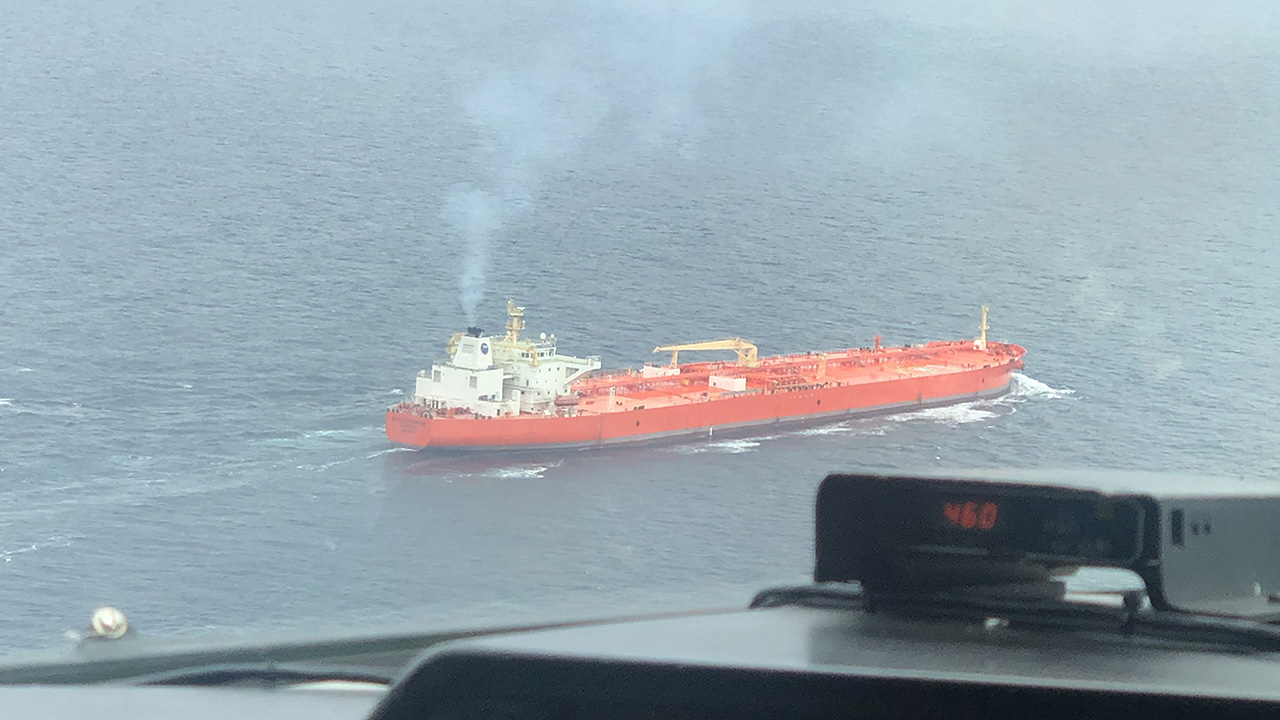Emissions from ship exhausts can have a major impact on air quality and climate, and in particular, change the behavior and brightness of clouds.
A mixture of particulates and gases, such as soot and sulphates, is produced by burning fossil fuels to power ships; which leads to lines of brighter clouds that can be seen from space. These “ship tracks” are similar to the contrails we often see behind planes.
The ACRUISE project has been studying the impact of ship emissions on the environment, using the FAAM airborne laboratory to track and analyse the ship exhaust plumes. In 2019, scientists flew directly through the exhaust plumes of a variety of ships in the busy Atlantic shipping lanes off the Portuguese coast.
“Using the FAAM aircraft allows us to sample the ship emissions in real world conditions. We can use the large suite of instrumentation on board to investigate direct emissions, chemical processing and the cloud interaction of the plumes.” – Professor James Lee, National Centre for Atmospheric Science and University of York.

The results of those flights, just published by the ACRUISE team in the journal Environmental Science and Technology, shows that some ships in the open ocean have been emitting large amounts of sulphates, with a strong potential to alter clouds and pollute coastal areas.
The research project has been designed to run in two phases, to deliver a ‘picture’ of ship pollution before and after international regulations were brought into action to limit sulphur emissions from ships.
“These results are quite remarkable. Traditionally, ship fuel has been one of the dirtiest forms of fossil fuels in use, but these results give an insight into what kind of a change the new regulations can have. It will be very interesting to see what differences we will find in the second phase of the experiment.” – Dr James Allan, National Centre for Atmospheric Science and University of Manchester
In January this year, the International Maritime Organisation ordered a reduction in maximum ship sulphur emissions from 3.5% to 0.5% of fuel mass.
ACRUISE scientists have already confirmed that ship exhaust emissions contain significantly less particulates when in areas controlled by regulation, like the English Channel, than in the open ocean.
While such regulations aim to reduce the emission of sulphates into the atmosphere, this will also reduce cloud brightness, reflecting less sunlight and potentially contributing to an increase in average global temperature.
Work has been published previously on ship emissions and their effects on air quality and climate, but tends to be from laboratory test rigs that may not represent ‘real’ emissions.
The team will return to the skies next year to repeat the measurements and assess the impact of the new international controls. These will be combined with surface-level and satellite observations, as well as computer modelling, to determine how much of a change the regulations have made to global air quality and climate.
The ACRUISE (Atmospheric Composition and Radiative forcing changes due to UN International Ship Emissions regulations) project is a UK-wide collaboration between the Plymouth Marine Laboratory (PML), National Centre for Atmospheric Science (NCAS) and the Universities of York, Leeds and Oxford.
